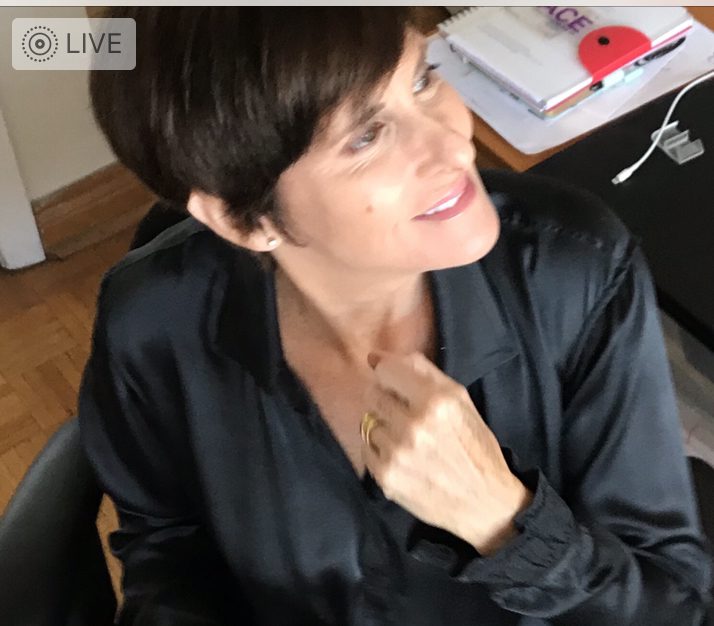Recently, although I don’t know if it’s been all that recent, there have been more and more opportunities to connect with those who have a message to convey. An important message to say to us. A message around; what’s holding us back, what we need to do to grow, thrive, create, get out of our own way, get unstuck and be fearless. Admittedly, I include myself in this mix. We all have something to say.
Why?
Ultimately, we want to take what’s learned and experienced, and spare others the time, energy and maybe sorrow of having to start from scratch. It’s the idea that information shared can prove helpful. With more insight comes, I hope, further action.
That sounds great. After all that’s where mentoring came about, and if used wisely and advantageously, incredible things can happen.
Case-in-point; Warren Buffet. Warren at an early age started investing. He studied under value investor Ben Graham. Buffett would read all day; annual reports from the thousands of different companies he could invest in. He could measure his success by seeing if an investment worked or not. And then, through his excellent mentor, would receive feedback. By the early 1960’s, through dedicated and consistent work, along with the help of his mentor, became the greatest investor of all time.
When it works, it works well.
Here’s the difference; if change is to take place, then we need to be ready to do something with the advice that we’re given. Like Warren did. We need to decide if we REALLY want to proceed. This isn’t easy as it takes decisive action to move forward. And taking decisive action requires us to do something. Anything.
Why is that so difficult?
Apart from our inherent laziness, and the idea that we are drawn to taking the path to least resistance, unless something catastrophic happens, we’re not all that inclined to run to the starting gate.
So, when we’re figuring out what our next moves are, or could be, it’s helpful to zero in on what matters to us. What’s important. What are our core values? What’s our core nature? For example, it’s helpful to know why we gravitate toward and then ask ourselves; “Is it for the reasons that I think?”
The interesting and perhaps missing part to this is that “we only know what we know.” Sure, that phrase is overused and yet let’s hear ourselves saying it. “I only know what I know.” And in that knowledge, we make decisions, we figure out what motivates us, and the kinds of experiences that we want to be having. Or not.
The or not is powerful. The, or not, can also really trip us up. What’s missing is our understanding of what we’re truly capable of doing. How we really want to be leading our lives.
Take Alan Watts for example, the British philosopher, writer, and speaker. He was known for interpreting and popularizing Eastern philosophies of Buddhism, Taoism and Hinduism for Western audiences. He wrote more than 25 books and articles on religion and philosophy, and spun words into a kind of rhapsody when he spoke.
Audiences tended to feel wiser after having listened to him. Watts spoke of the mind, and the constant noise of our thoughts. It was a kind of not sitting still, a sense that; “I don’t want to be with myself. I want to run away from myself.” He continued to note that we can become addicted to our thoughts, and to quiet the mind, we needed to stop thinking or else we’d go insane. He suggested that we not try to do this, we simply leave our minds alone. We stop thinking and it will quiet itself.
We certainly know a lot more about the brain and our thoughts since Watt’s died in 1973 at the age of 58. I can’t help but think that while Watts was espousing his beliefs to anyone who would listen, the message felt apparently clear that he too was grappling with his own thoughts. He too was escaping life. He didn’t have his own answers.
What I find tends to be missing from the message, is the messenger. The idea that we latch ourselves onto certain thoughts, ideas, a perspective, and a person (such as Watts) can make things perhaps even more complicated for us. We embrace certain ideas or methodologies that we feel could help us, when perhaps what we really need is to let go.
To let go of the idea that we don’t know what we want, or the idea that we’re stuck or lacking in some way. This could appear as a sweeping statement and yet we tend to attach ourselves to the idea that If I’m not doing or accomplishing something, then I’m not any good. When really, one has nothing to do with the other. I would suggest that this is more about making comparisons rather than identifying with who we are as a person.
If we started with who we are, then gathered the missing elements that would enrich our lives, then that may be a good starting point. At the very least an interesting personal base line.
The truth of the matter is that we need to trust ourselves more. Embrace what we do know and then open ourselves up to the possibilities of what could be if we embraced various perspectives, rather than the other way around.
Like Warren Buffet, he knew what he wanted to accomplish, or at the very least he had an idea, and then gathered additional wisdom and information from those that he admired and felt could help him along HIS journey.
Our journey starts and ends with us.
To be continued …


